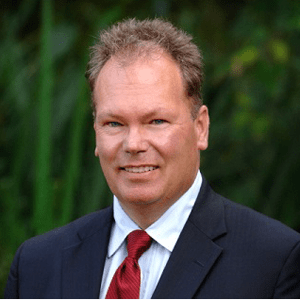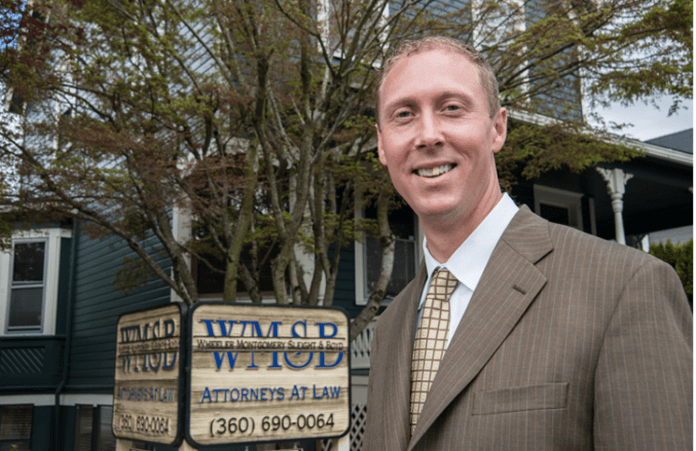Over the past two decades, the legal industry has undergone changes brought on by technology, lawmakers and the economy. While technology has brought information to lawyers’ fingertips, some say it’s also created issues.
Dustin Klinger, an attorney with Miller, Nash, Graham and Dunn, LLP, who focuses on commercial real estate, family business and cooperatives, says that specialization by attorneys has increased dramatically.
“It’s tricky for me to see it as one industry because there are so many subgroups. There are lots of lawyers in the same industry that I’ll never meet. Fracturing and super specialization is true at larger firms, but there are still a fair number of sole practitioners that are working as generalists in Clark County,” Klinger said. “It’s almost impossible to be everything to everyone.”
Chad Sleight, a partner at Wheeler, Montgomery, Sleight and Boyd, has a similar opinion.
“I don’t think it’s easier to be an attorney now than it was in the past,” he said. “The attorneys I’ve spoken to who are in their 50s and 60s talk about a very different situation.”
Attorney movement has increased
If it looks like there are quite a few lawyers moving from one office to another, Klinger suggests that it’s partly due to the improving economy.
“There was some pent up movement; during the recession, people cramped down and held on to their jobs, but with the increase in work, people may be feeling more confident,” he said. “Law firms may be more aggressive as well, offering better deals.”
Three years ago, there may have been too many young lawyers coming into the industry, Klinger added. “Firms weren’t hiring so young attorneys were hanging out their own shingle.”
 Curtis A. Welch, partner at Duggan, Schlotfeldt and Welch, agrees that there has been an increase in movement of attorneys between law firms.
Curtis A. Welch, partner at Duggan, Schlotfeldt and Welch, agrees that there has been an increase in movement of attorneys between law firms.
“It sure is happening more now than 15-20 years ago. It used to be that an attorney was hired on at a firm and that’s where they would stay.” Welch said. “It’s hard to say why it’s happening now, the reasons are so varied. It might be that while an attorney is in a firm they develop a relationship with a client who later comes to them with an opening for in-house counsel position and the attorney finds they prefer working with a single client over multiple clients.”
An experience gap?
When it comes to young lawyers joining the profession and having less experience, Welch says the presence of experienced lawyers at larger firms might be one reason for young lawyers to seek positions at those firms. Additionally, he suggests that young lawyers may also be able to find experienced lawyers to learn from in groups sponsored by the bar association.
That experience gap is something that state bar associations have been looking to fill.
Welch is a member of the Superior Court Bench Bar and says that while Clark County lawyers have proposed a legal mentoring program in the past, it’s something that hasn’t come to fruition.
“It’s an age-old problem,” he said. “If a young lawyer is in private practice with an older, more experienced lawyer, that’s ideal to help the new lawyer. Without resources, [the lack of experience] is a real problem.”
Welch says that there might be issues filling positions as retirements occur.
“In the last 10 years, law school applications are way down; there’s been a huge decrease from 10 years ago,” Welch said. “Based on the decrease in applications, it might be tough. If there’s a higher demand though, salaries may be higher, but if the trend continues, it seems like there could be a problem.”
Klinger doesn’t see the problem as one of too few new attorneys.
“I think law schools are often five to 10 years behind the industry,” he said. “In 2009 and 2010, there was a rush of people going into law schools, and they all came out at the same time. Now there’s a real flood of supply. I don’t sense a lack of young attorneys [to fill in when retirements start], but I think experience will be the gap.”
Sleight, 37, calls himself a middle-stage attorney, and says there are very few of those in the Clark County area.
“You’re either just out of law school or ready to retire,” he said.
Like Klinger, Sleight doesn’t see an issue of too few attorneys to fill in as retirements begin in the next 10-15 years. In fact, his concern is that there are too many lawyers. The issue he worries about is the change that allows more limited license practitioners to assist people in preparing legal documents.
“Law schools have allowed more and more people to enter law school, which is great for them, but when you flood the market, it’s very hard to find a job,” explained Sleight. “Between the 1970s and 1990s, it was easier to find work and now there are more lawyers than jobs. For students who rack up $100,000 or more in loans, it’s very hard to pay those back.”
Industry changes
Over the past decade or two, the legal industry as a whole has undergone changes stemming from the passage of new laws, technology and even the ability for attorneys from one state to practice in another.
Sleight suggests that family law has likely changed the most in recent years, particularly with the advances in technology.
“Email allows us to send documents and get information faster, but clients also seem to want their attorney at their beck and call, and immediate answers to questions,” Sleight said.
Klinger agrees that technology has brought change and some complications.
“We’re dealing with constant pressure to cut costs,” he said. “Technology has helped though. We have the data, but we still need someone to read and interpret it, so it doesn’t exactly make things easier. It’s tricky. People want instant answers, but they don’t always come instantly.”
Welch suggests that reciprocity between the state bar associations in Oregon and Washington has brought about big changes for the legal industry in the Clark County area as well.
“When reciprocity started, that’s been a trend. There are more Portland-based lawyers working in Clark County, and I would think it goes the other way too,” Welch said. “When I took the bar exam in Oregon in 1987 and in Washington in 1994, it was tough. It’s a three day exam, it’s a time commitment. Reciprocity makes the path a lot easier.”




